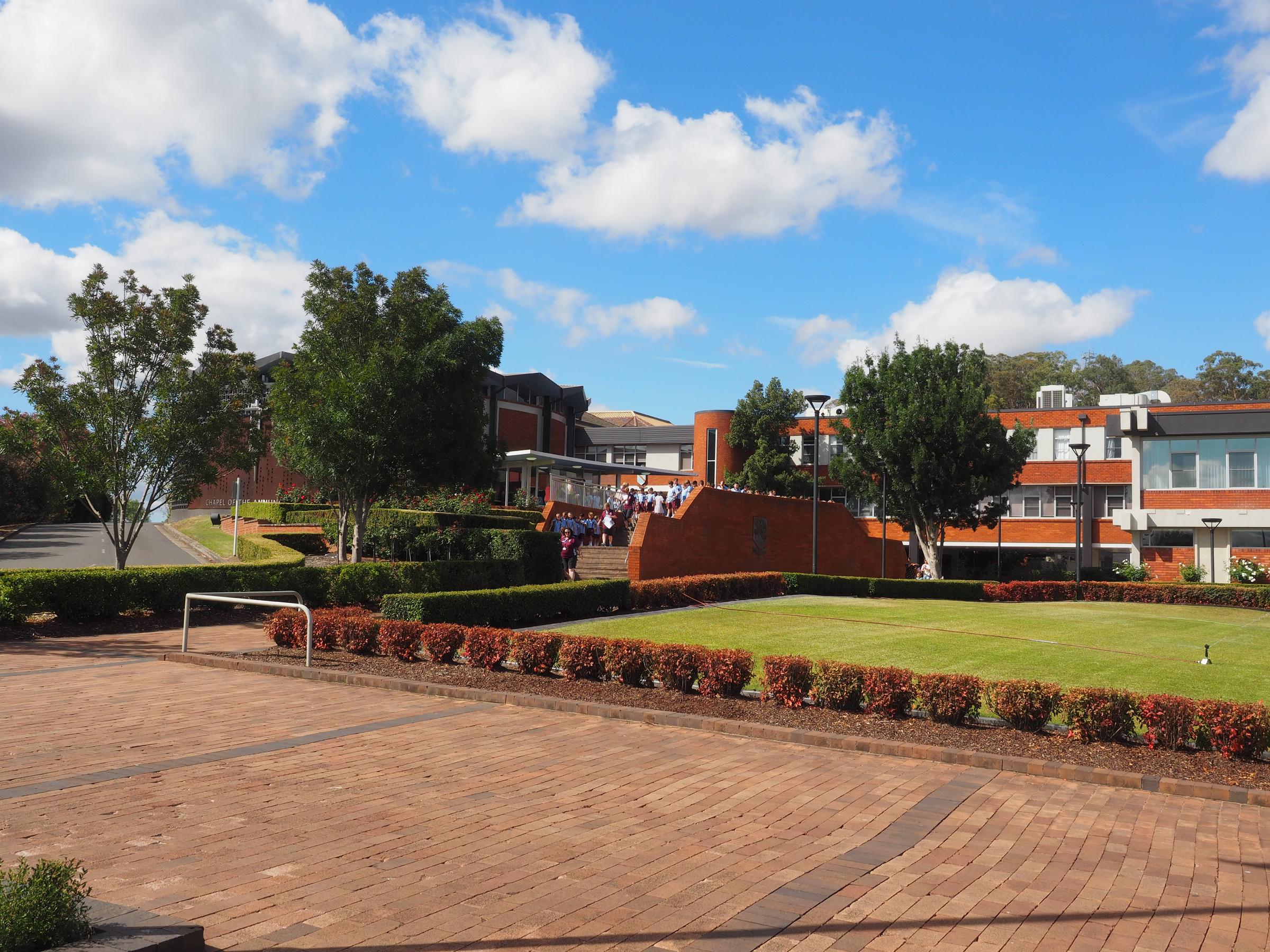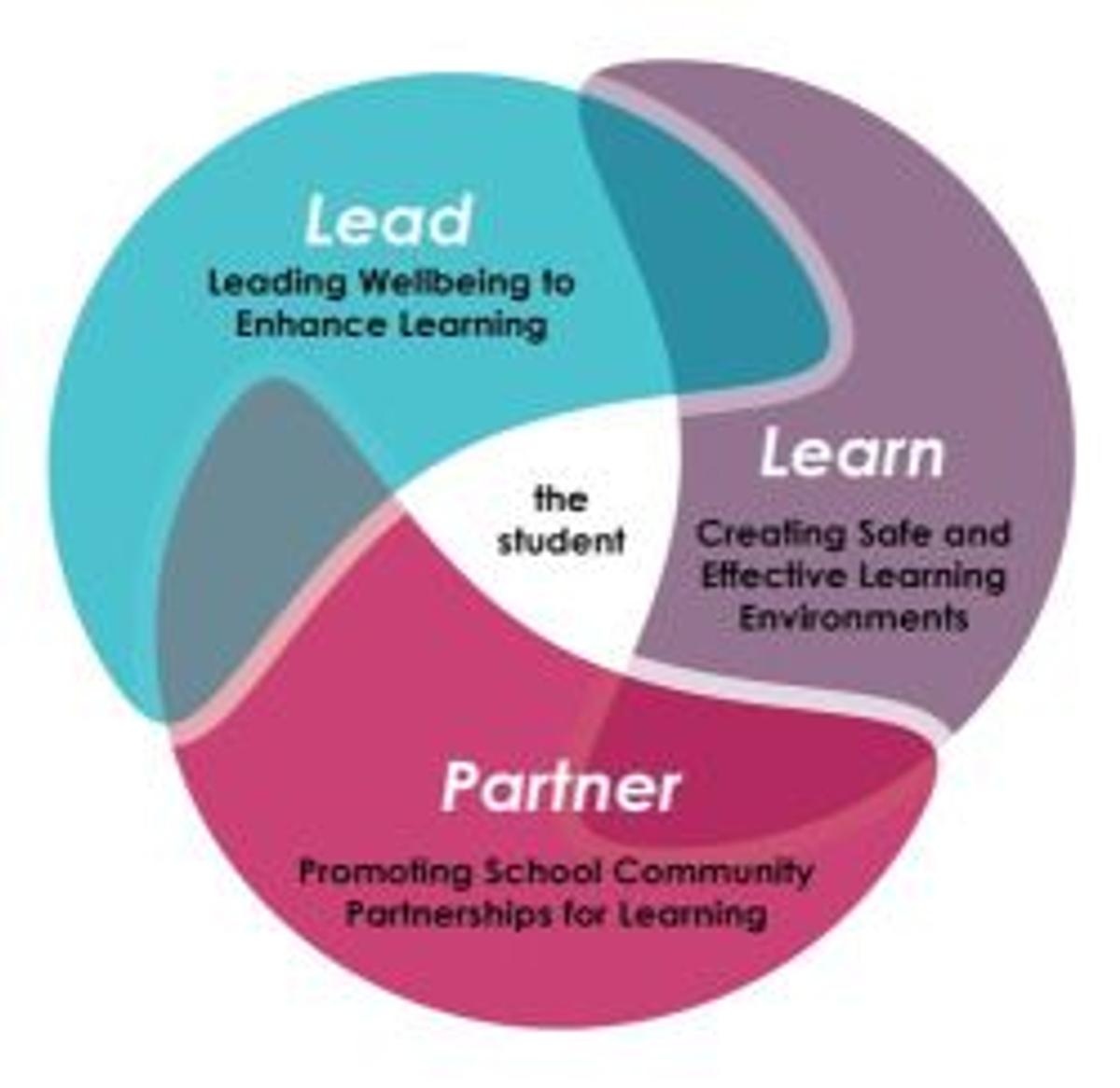From the College Principal

Dear Parents, Carers, Students and Friends of the St Gregory’s College Community,
We have now reached the end of Week 4 in a nine-week term. The weeks are moving rapidly, and it has been wonderful to welcome back our students to face to face learning over the past few weeks. From Monday 25 May, we will have all our students back on the College campus – this will be a great sight and a positive step forward as we learn to ‘work with’ the COVID-19 pandemic.
As our students have been gradually welcomed back to the College, I have made the point to all our students that the COVID-19 virus is still with us each day. As a College community, we have put procedures and protocols in place to mitigate the risk of the virus spreading. We all have a responsibility to others in our community to practice appropriate physical distancing, good hygiene and responsible health precautions. At times over the last few weeks, our students have neglected the basics, returning to the ‘old norms’ of pre-COVID-19 times. We now live, work and play in a different norm and we all need to adjust and accept the responsibilities that go with this new paradigm.
I want to use this opportunity to once again say thank you to our students, parents, carers and staff who have done an outstanding job in the online environment. Many positives have emerged from the online teaching and learning phases we have worked through, and I hope we don’t ever feel the time has been wasted and we need to catch up on six weeks’ worth of work. For the majority of our students, the time has been well spent (albeit very different to the regular days at the College), and I strongly believe that the benefits of learning in an online environment have far outweighed the negatives that sometimes we focus on.
From Monday 25 May, face to face learning at the College will be enhanced by the learnings from our last six weeks. From Monday, our students need to ‘get back on the bike’ and push forward with a strong sense of determination and a newfound appreciation of what it means to learn collaboratively in a great College environment.
Easter Season & Pentecost - A reminder once again that we are in the fifty days of Easter. After Lent's forty days of preparation for Easter, it would be anticlimactic to celebrate the feast of Easter for only one day. Jesus is risen! He is alive! Holy Mother Church in her wisdom ensures that we celebrate the resurrection longer than we do the season of penance. The Paschal Mystery, Christ’s passion, death and resurrection, is central to our faith. Jesus conquered sin and death and reopened the gates of heaven, which were closed due to the original sin of Adam and Eve. Through His victory over death and our rebirth in baptism, we share in everlasting life.
While the Resurrection is the nucleus and celebrated in our Faith every day, we particularly "exult and rejoice" during the Octave of Easter and Easter season, “The fifty days from Easter Sunday to Pentecost (Sunday 31 May), the day of the coming of the Holy Spirit.”
Our Moral Imperatives & Core Beliefs - I often speak to our staff, groups of students and parent meetings about St Gregory’s not being a ‘perfect’ school. What I mean by this statement is that we are a College which continues to grow and learn every day. Not everything we do will be pleasing to our College community members and sometimes we get things wrong. I believe the sign of a strong Catholic College community is working together to make us ‘better than the day before’ and to reach upwards and outwards to meet achievable goals. It is in this spirit that I ask our parents and students to work with the College in harmony, keeping the doors of communication always open.
What is our ‘moral imperative’ at St Gregory’s College? This is the question we are constantly answering as we try to build structures and practices which will bring about ongoing improvements to student learning and wellbeing. The demands of the 21st century require all of us (staff) to educate and fully prepare our students for life beyond the College – for their place in society, for citizenship, for tertiary education, for their career/s, and importantly for their ongoing faith and spiritual development. Research, practice, and common sense confirm that a whole-child approach to education will develop and prepare students for the challenges and opportunities of today and tomorrow by addressing students' comprehensive needs through the shared responsibility of students, families, schools, and communities.
We have a responsibility to ensure each student in our College is healthy, safe, engaged, supported, and challenged. All educators in our College continually want to improve the work they do for students, their families, and the community.
Our core beliefs are: -
- Each student is educated in and shown through constant example, the love of God. This example allows each student to know, understand and develop a love for God.
- Each student is immersed in the Marist charism, understanding how St Marcellin Champagnat, demonstrated his love for God through his devotion to Mary, our Good Mother.
- Each student learns about and practices a healthy lifestyle.
- Each student learns in an environment that provides endless opportunities for development, and that is physically and emotionally safe for all.
- Each student is actively engaged in learning and is connected to the College and broader community.
- Each student has access to personalised learning and is supported by qualified, caring adults.
- Each student is challenged academically and prepared for success beyond their primary and secondary education, and for participation in a global environment.
Building Capacity and Resilience in Our Students - In a previous newsletter last year, I wrote about the need for us to work together to build resilience in our young people. In that newsletter, I wrote about what it means to be resilient, especially in relation to learning and growing up in our fast-paced world. As I read more and think more about this matter, the importance of building stamina has emerged for me as something critical for our students. This is where we need your input and help.
You and I know that so much of success in life boils down to persistence. While “natural ability” is often touted as a gift that must be nurtured, people who have learned the art of persistence are able to work through challenges, deal with failure and achieve their goals. But how can you and I help your child develop persistence?
Like a sprinter who has not trained to run a marathon, learners can’t keep learning in the long-term if they haven’t developed the stamina they need to cope with challenges and failures. Teaching persistence depends on developing a student’s stamina. However, to develop stamina and persistence, they need to have the right learning environment.
Parents and teachers need to teach positive self-talk. Some learners don’t know how to motivate themselves through positive self-talk. Their standard internal monologue, when faced with a learning challenge, maybe “I can’t do this,” or “I’m too stupid to learn this.” We can teach them there are better ways to use self-talk. Please assist by giving your child some specific wording: “I can do this if I keep at it,” or “If I’m stuck, I’ll ask for help” or, “I can’t do this, yet.”
It is amazing how learners can blossom when the people they look up to (their parents, teachers, coaches, etc.) express confidence in their ability to achieve their goals. You need to have high, but reasonable, expectations for your child – and make sure they have access to resources to help them, and that they know how to use these tools.
Students need to know that they can get better at their chosen task if they put in the effort. Rather than a ‘you’ve-got-it-or-you-don’t’ mentality, please help them to see their challenge as a skill that can be mastered in time. Encourage them to have this mindset by connecting the effort they put in with the progress they make. Say things like, “Your extra reading practice is working – you’re reading new words much more easily now.” It is really about developing the growth mindset mentality and acknowledging their brains are capable of growth over time.
Sometimes all that is needed is a bit of encouragement to overcome a hurdle. Reminding your child how good they will feel when they finish their homework, for example, can be all they need. At the same time, they need to know they can take a break when they need it – but it’s important they learn to come back after the break to complete the work. This way they learn they can do more with persistence.
Sometimes, as teachers or parents, we don’t want to talk about the challenges we faced and overcame; perhaps we feel it’s awkward or discouraging. Yet, relating a story about something you personally found difficult – and yet kept at until you finished it – is a great way to teach your child that we all feel like giving up sometimes. Without lecturing your child, you’re teaching them how to overcome the negative feelings that can stop them from facing challenges.
You may think neuroscience isn’t the kind of subject that will motivate your child, but it might. Teach them about brain plasticity – the idea that the brain changes in response to how it’s used – to help them understand focussed, sustained effort will pay off.
We all know that persistence won’t be learned in one session. All of the above suggestions need to be repeated to truly sink in. Students learn persistence in the same way that they learn sight words or multiplication tables – through repetition. Strategies like modelling persistence, connecting effort to achievement, and pushing students to do a little more than they think they can aren’t a one-time deal. But when repeated over time, the cumulative effect will likely be increased stamina, improved persistence, and intrinsic motivation for ever greater learning.
Thank You - I wish to thank the many, many staff members who are constantly building behaviour-influencing relationships with their students. Having a positive relationship with students makes everything easier, particularly classroom management. When students like their teacher and trust them, they’ll want to please them, which in turn gives a teacher powerful leverage to influence their behaviour. If teachers are pleasant in their interactions with their students, if they are open to laughter and seeing the humour in their classroom and in the unique and wonderful personalities of their students, then behaviour-influencing rapport will grow naturally. Students will always look up to their teacher when a positive relationship has been formed and nurtured.
Leave from the College – I wish to inform you that I will be on leave from the College from Tuesday 26 May to Tuesday 16 June. I will be having some knee surgery during this period of leave. Mr Paul Brooks, our College Deputy Principal and Head of Senior School has been appointed by Marist Schools Australia to the position of Acting College Principal in my absence. I know you will support Mr Brooks in this role. I look forward to my return to the College in Week 8 of Term 2.
I wish you God’s blessings always. Please stay safe, stay healthy and stay strong over the coming weeks. May Mary, our Good Mother, Saint Marcellin Champagnat and Saint Gregory continue to guide us each day and inspire us on our journey together.
Lee MacMaster
College Principal (K-12)



